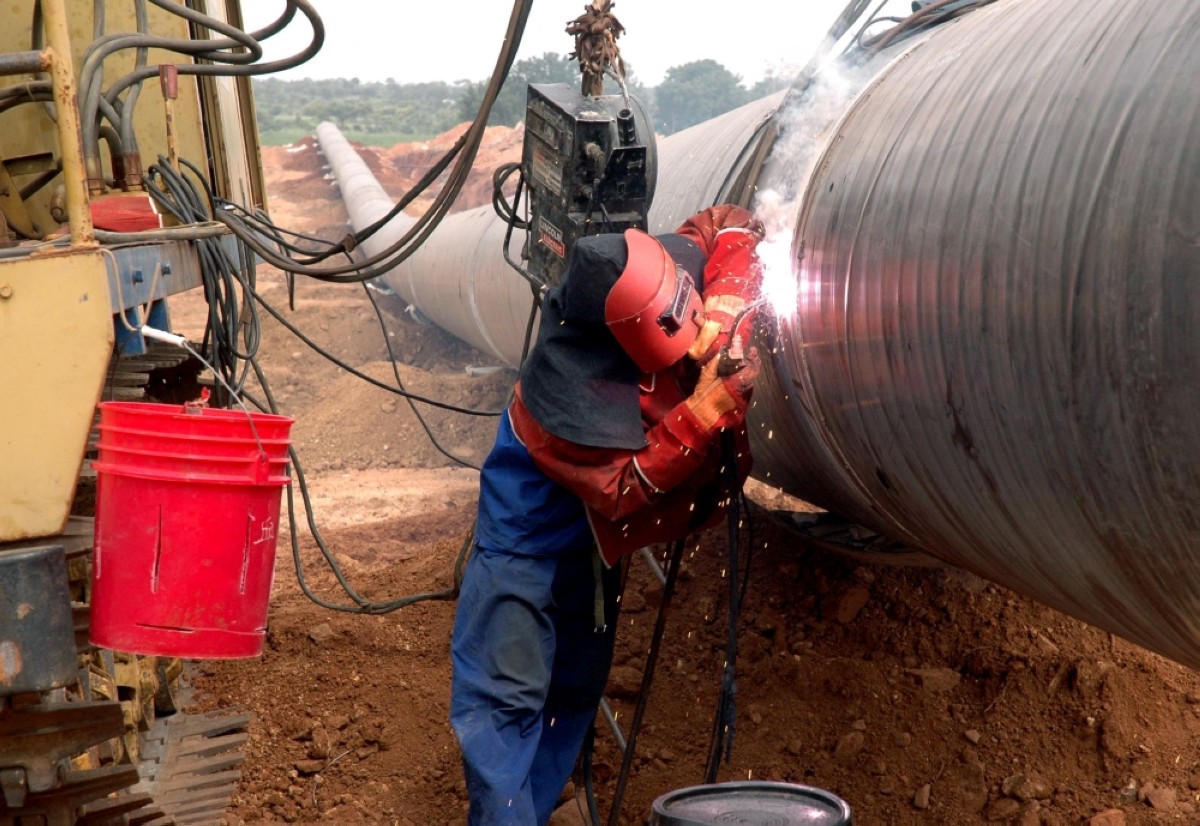50 oil and gas companies pledge to cut emissions
DUBAI: Fifty oil and gas companies representing 40 percent of global production pledged to decarbonize their operations by 2050 at the UN’s COP28 climate talks in Dubai on Saturday.

DUBAI: COP28 president Sultan Ahmed Al-Jaber speaks during a meeting at the United Nations climate summit in Dubai on December 2, 2023. -- AFP.
Saudi giant Aramco and ADNOC of the United Arab Emirates were among 29 national companies to sign a non-binding agreement that also envisaged zero methane emissions and eliminating routine flaring this decade.
Aramco, the world’s biggest oil company, and ADNOC, whose CEO Sultan Al-Jaber is president of CO28, had already announced similar CO2-reduction targets — which do not include emissions when their fuels are used by customers. “Whilst many national oil companies have adopted net-zero 2050 targets for the first time, I know that they and others, can and need to do more,” Jaber said.
Unlike the Western oil majors, which are intensely scrutinized by the public, few large national oil companies had announced such targets. PetroChina and Brazil’s Petrobras also signed up to the new accord, named the Oil and Gas Decarbonization Charter.
The National Oil Company of Libya, Malaysia’s Petronas and Sonangol of Angola were also among the signatories, along with France’s TotalEnergies, US firm ExxonMobil, and Britain’s BP and Shell.
The charter is part of a set of initiatives designed to accelerate the decarbonization of the global energy industry, prepared in the year leading up to COP28. They are voluntary commitments unlike the decisions of COP28, which are taken by consensus between nearly 200 countries under the aegis of the United Nations.
Melanie Robinson, of the World Resources Institute, a non-profit research body, said the agreement showed that non-binding pledges from the industry were not sufficient to address climate change.
“This charter is proof that voluntary commitments from the oil and gas industry will never foster the level of ambition necessary to tackle the climate crisis,” she said. “We can’t meet our climate goals unless governments set policies that rapidly and equitably transition our economy away from fossil fuels.”
Meanwhile, Japanese Prime Minister Fumio Kishida has vowed to stop building new coal-fired power plants that lack measures to cut carbon emissions. The announcement was made at the UN’s COP 28 climate summit in Dubai, as Japan, heavily reliant on imported coal and other fossil fuels, aims to become carbon-neutral by 2050.
“In line with its pathway to net-zero, Japan will end new construction of domestic unabated coal power plants, while securing a stable energy supply,” Kishida said on Friday, according to a transcript of his speech released by Japan’s foreign ministry.
The goal of carbon neutrality by 2050 is shared by G7 members except Germany, which has a more ambitious 2045 deadline.
Kishida added Japan has already cut greenhouse gas emissions by 20 percent, and is making progress toward the goal of a 46-percent reduction by 2030 from 2013 levels. To reduce carbon emissions, Japan is promoting the use of hydrogen and its derivative ammonia by burning it alongside gas and coal at existing power stations. Experts remain skeptical, however. Leo Roberts a researcher at climate think tank E3G, said the change was a “backdoor” to increasing the lifespan of the existing “fossil fuel infrastructure”.
He added that the ammonia itself needs to be produced, “which is a whole other industry and that requires electricity to do so.”
The government has also said it will restart more of Japan’s nuclear reactors. After a tsunami caused a meltdown at the Fukushima Daiichi nuclear plant in March 2011, Japan halted all its nuclear reactors to review and strengthen safety controls.
That left the country highly dependent on imported fossil fuels - especially natural gas, which accounts for nearly 40 percent of Japan’s total electricity production, and coal, which represents around 30 percent. — AFP.











